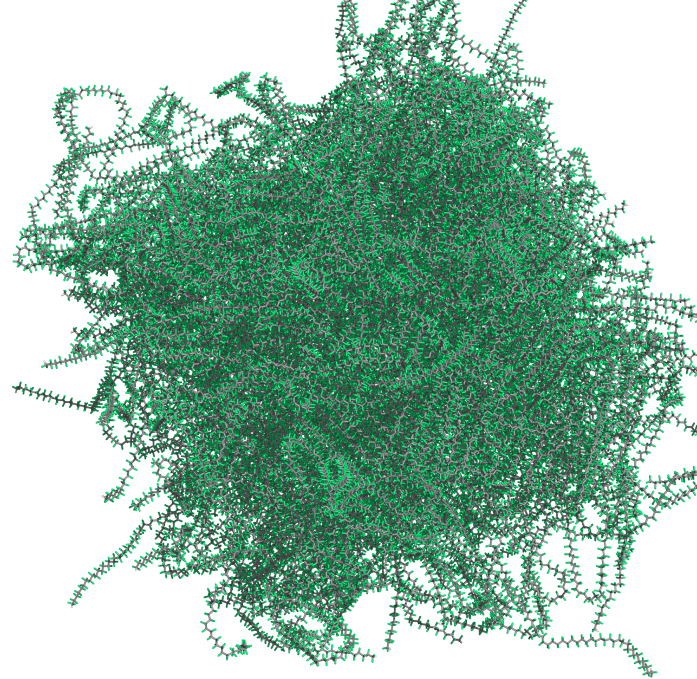Desmond for Materials Science
High-performance molecular dynamics (MD) engine providing high scalability, throughput, and scientific accuracy

High-performance molecular dynamics (MD) engine providing high scalability, throughput, and scientific accuracy

Desmond is a GPU-powered high-performance molecular dynamics (MD) engine for predicting bulk properties of materials, such as thermophysical properties, elastic constants, stress/strain relationships, diffusion coefficients, viscosity, persistence length, free energy of solvation, and more. Desmond also characterizes structure and properties in complex systems involving non-equilibrium systems as well as interfaces or self-assembled structures.
Achieve exceptional throughput on commodity Linux clusters with both typical and high-end networks. Improve computing speed by 100x on general-purpose GPU (GPGPU) versus single CPU.
Constructed with a focus on numerical accuracy, stability, and rigor. Enables the simulation of large scale features of nanometers to micron size over time scales of picoseconds to microseconds.
Provides a robust framework for the calculation of energies and forces for atomistic and coarse grained force field models. Compatible with chemistries commonly used in both biomolecular and condensed-matter research.
Perform explicit solvent simulations with periodic boundary conditions using cubic, orthorhombic, truncated octahedron, rhombic dodecahedron, and arbitrary triclinic simulation boxes with careful attention to the efficient and accurate calculation of long-range electrostatics, and can be used to model explicit membrane systems, complex mixtures, polymers, and interfaces under various conditions.
Support automated simulation setup, including multistage MD simulations with built-in simulation protocols, prediction of equation of states (EOS) at multiple temperatures, and prediction of dynamic responses at non-equilibrium states. An intuitive interface provides intelligent default settings and allows for rapid setup of computational experiments.
Visualize and examine computed results within the same MS Maestro modeling environment that connects to a comprehensive suite of modeling tools from quantum mechanics to machine learning.
Discover how Schrödinger technology is being used to solve real-world research challenges.
Get more from your ideas by harnessing the power of large-scale chemical exploration and accurate in silico molecular prediction.

Schrödinger has a strategic partnership with NVIDIA to optimize our computational drug discovery platform for NVIDIA GPU technology.

Learn more about the related computational technologies available to progress your research projects.
A modern, comprehensive force field for accurate molecular simulations
Efficient coarse-grained (CG) molecular dynamics (MD) simulations for large systems over long time scales
Molecular dynamics (MD) modeling for predicting water loading and small molecule gas adsorption capacity of a condensed system
Efficient molecular dynamics (MD) simulation tool for predicting liquid viscosity and diffusions of atoms and molecules
Browse the list of peer-reviewed publications using Schrödinger technology in related application areas.
Level up your skill set with hands-on, online molecular modeling courses. These self-paced courses cover a range of scientific topics and include access to Schrödinger software and support.
Learn how to deploy the technology and best practices of Schrödinger software for your project success. Find training resources, tutorials, quick start guides, videos, and more.